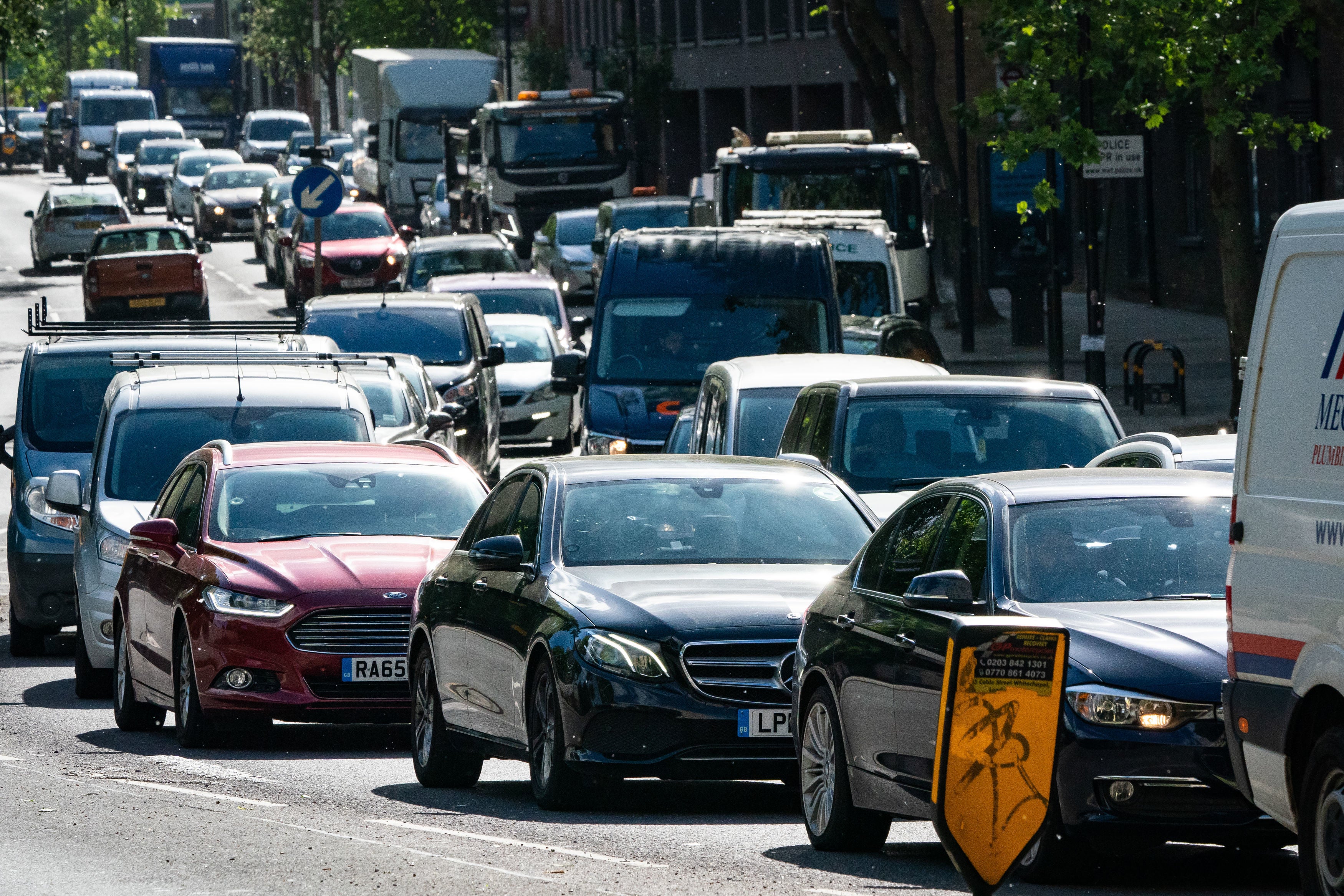Coronavirus pandemic leads to ‘seismic shift’ from public transport to cars, warns report
For first time since 2002, less than half of drivers say they would use their vehicles less if train and bus network improved, RAC survey finds

The coronavirus pandemic has wound back the clock two decades in terms of attitudes to public transport use, with less than half of drivers now saying they would switch their car for a train or bus if the service was improved, according to new research.
The RAC’s annual motoring report suggests Covid-19 is deterring significant numbers of people from using sustainable forms of transport with the most notable shifts reported among young and new drivers and people living in the capital.
“The declining appeal of public transport seemingly represents a seismic shift compared to recent years, and suggests drivers are more wedded to their cars than they have been for a long time,” the report said.
For the first time since 2002, less than half of drivers (43 per cent) said they would use their cars less if public transport was improved – down sharply from 57 per cent in 2019.
And fewer drivers said they cycle regularly in 2020 compared to last year – just over a fifth (22 per cent) do so at least once a month, down from 30 per cent a year ago.
Government advice not to use public transport largely explains these changing habits. but there is conflicting evidence on the coronavirus transmission risk posed by public transport.
While Dr Julian Tang, a professor of respiratory sciences at Leicester University, told Sky News last month that safety protocols implemented on transport networks made them "the safest places on earth", Italian leaders recently blamed crowded buses and trains for a surge in cases there.
More than half of UK drivers (57 per cent) said having access to a car was more important now than before the coronavirus pandemic, the RAC report found, while there was also a sharp rise in the number of people reporting that a car was “essential” for everyday tasks like shopping and visiting friends compared to a year earlier.
Nearly seven-in-10 drivers (68 per cent) said a car was required for carrying items like shopping, up from 54 per cent last year, while six-in-10 drivers (59 per cent) said a car was essential for meeting up with friends and family who live elsewhere in the country – up from 45 per cent in 2019.
Campaigners have warned that a shift away from public transport will worsen traffic congestion in urban areas and lead to a deterioration in air quality.
Notably, people living in London were significantly more likely to say they needed a car than they did before March.
The capital has a world-renowned public transport network and Londoners turning to private vehicles in increasing numbers raises the prospect of an even more profound modal shift across the rest of the country.
Emma Gibson, director of London TravelWatch, a watchdog for transport users in the capital, told The Independent: “This research tallies with our own which says that over a third of Londoners expect to use their car more when the pandemic is over, especially those who have children. With road congestion and air quality both at already problematic levels in the capital, more people using their cars will only make a bad situation worse.
“Our research also shows that people who are actually travelling on public transport at the moment, report feeling quite safe, probably helped by train companies and Transport for London upping their game when it comes to their cleaning regimes. But, as ever, if people are to be attracted back onto public transport, keeping fares affordable and trains and buses running when people need them, is still crucially important.”
Figures released over the summer showed there was a 71 per cent increase in drivers caught speeding in London after the coronavirus lockdown started.
Kent Police and Derbyshire Constabulary also recorded a year-on-year increase in speeding incidents of 53 per cent and 41 per cent respectively.
Simon Munk, of the London Cycling Campaign, told The Independent it was"worrying, but not unsurprising" that those with cars were relying on them more.
He said: "This risks major impacts to us all, including our ability to respond to the climate emergency. If we don’t rapidly enable alternatives to car use, we’ll all face higher levels of air pollution and gridlock, and those without cars will face fewer transport options too.
“That’s why councils, the government, everyone needs to enable many more people to walk and cycle, rapidly delivering a comprehensive network of safe and direct cycle routes as a priority. We all face a choice between more cars, and all the negatives they will bring, or embracing more walking and cycling and a healthier, greener future.”
However, the RAC report pointed to some positive change, with a shrinking number of people reporting that they expected to travel by car to work after the pandemic (down from 67 per cent to 64 per cent).
RAC data insight spokesperson Rod Dennis said: “Now, for the first time since 2002, we have fewer drivers than ever saying they’re prepared to use public transport even if services improved – underlining just what a huge role the car continues to play in 2020.
“As cities seek to improve air quality and make urban centres cleaner places, it’s clear that low-cost, efficient alternatives to the car need further thinking and much greater financial investment.”
He called for more investment in established park and ride schemes and for councils to explore “park and cycle, park and walk, or even park and scoot”.
“A failure to invest in adequate alternatives for drivers keen on accessing town and city centres risks stifling the recovery of these areas as shopping and tourist destinations as we eventually come out of the coronavirus pandemic,” he said.

Join our commenting forum
Join thought-provoking conversations, follow other Independent readers and see their replies
Comments